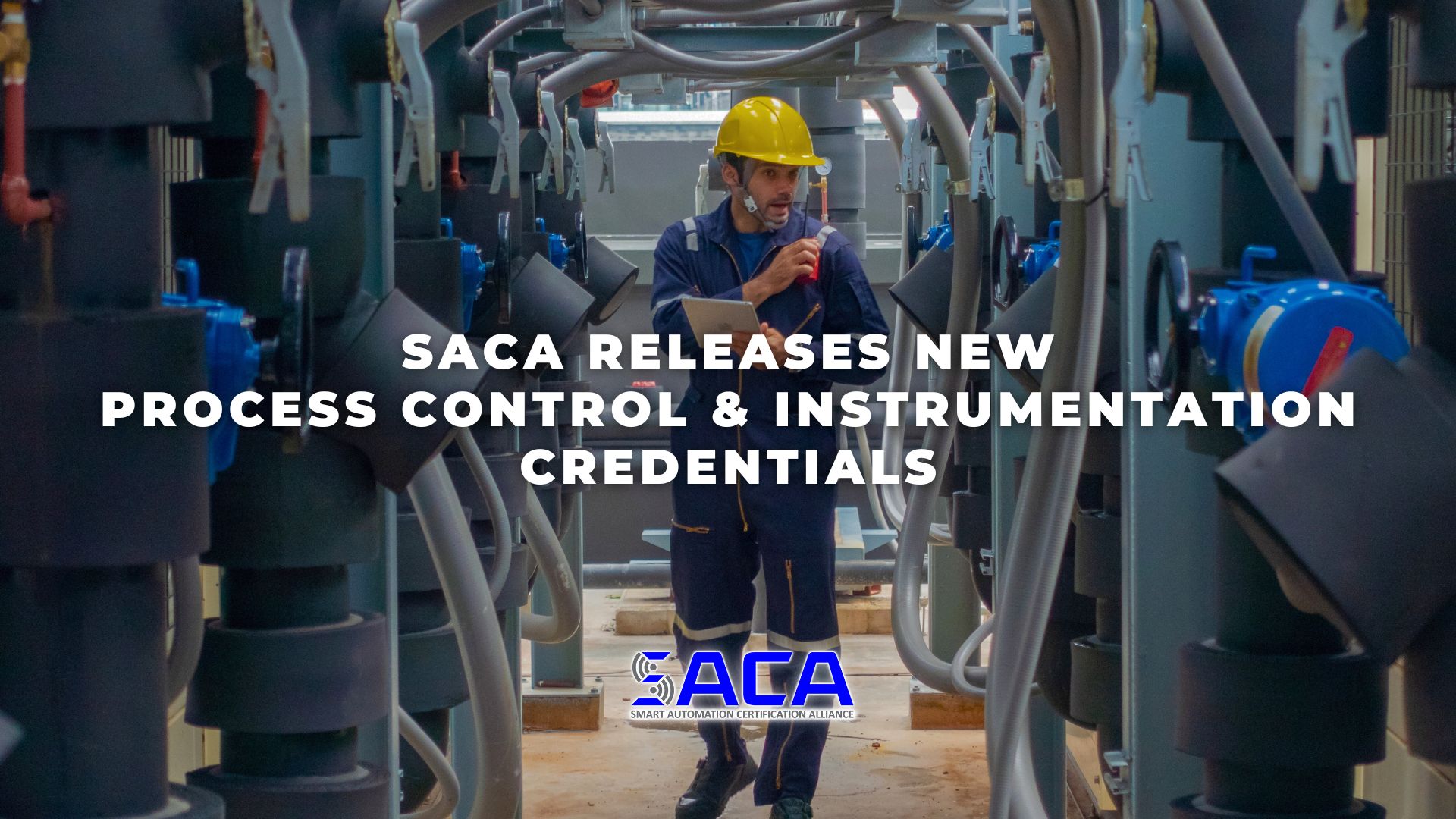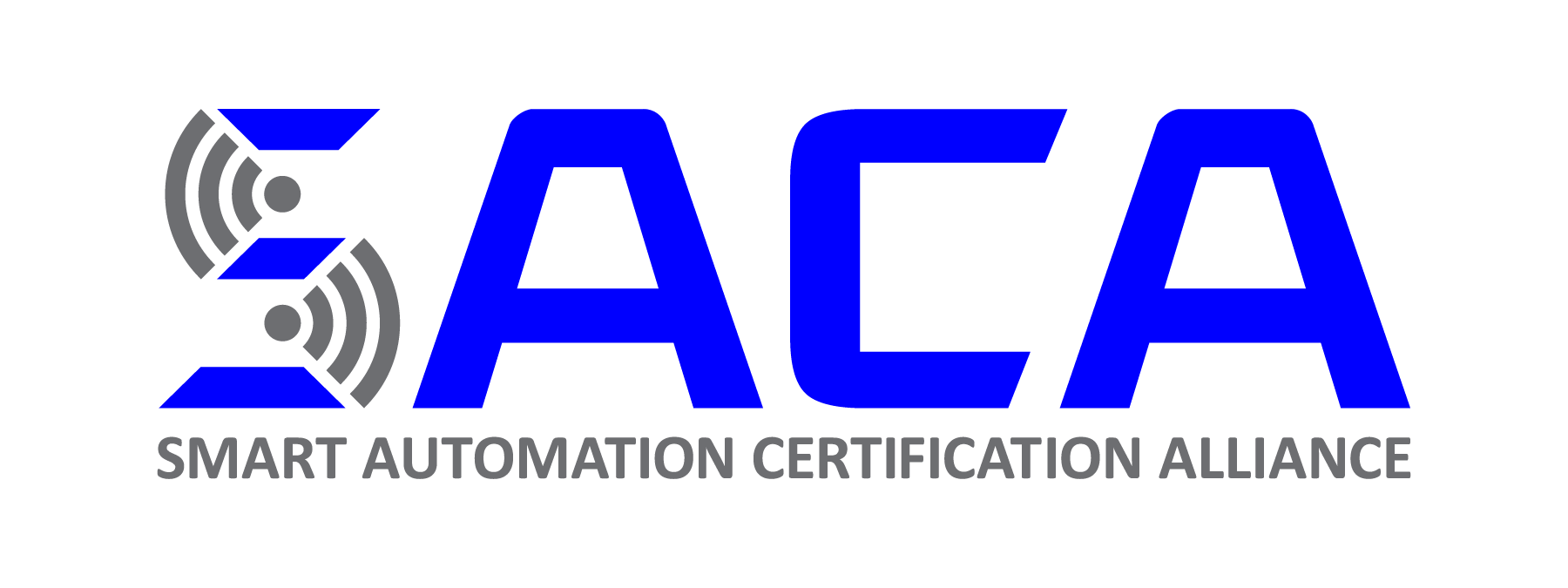
The Smart Automation Certification Alliance (SACA) is pleased to announce the release of new standards covering Process Instrumentation, Basic Process Control, and Advanced Process Control:
- Process Instrumentation
- C-261 Process Measurement Instrumentation 1
- C-262 Process Measurement Instrumentation 2
- Basic Process Control
- C-270 Process Control Systems 1-Flow and Level
- C-271 Process Control Systems 2-Temperature
- C-272 Process Control Systems 3-Pressure
- C-273 Process Control Systems 4-Analytical
- C-274 Process Control Troubleshooting 1
- C-275 Process Data Acquisition 1
- Advanced Process Control
- C-320 Smart Valve Positioners
- C-321 IO-Link Smart Process Instrumentation
- C-322 Visualization and Data Acquisition 1
- C-323 Smart Process Control Systems 1
NOTE: The standards for these credentials have been released. Certification exams for these credentials are being finalized and will be released soon.
Process control and instrumentation are vital parts of many major industries, including: power generation; petrochemicals; food processing and bottling; chemical manufacturing; biotechnology; pharmaceuticals; refineries; and more. These industries need highly skilled workers to fill thousands of open positions, and employers need to know that potential employees have the skills they need to hit the ground running.
That’s why SACA’s new process control and instrumentation standards were developed with input and guidance from a combination of process control industry experts and representatives from various educational organizations. For example, Endress+Hauser collaborated with SACA to host Process Control Technical Work Group meetings at its U.S. headquarters in Greenwood, Indiana, as well as its campus in Pearland, Texas, south of Houston.
Representatives from many different organizations gathered to validate certification standards for process control and instrumentation, including: Endress + Hauser, Rockwell Automation, Vector Controls and Automation Group, Kirby Risk, Pearland Economic Development Corporation, The Manufacturers’ Association, the American Technical Education Association, the American Association of Community Colleges, the University of Wisconsin-Stout, Ivy Tech Community College, Monroe Community College/Finger Lakes Workforce Development Center, Galveston College, Lee College, Del Mar College, Lamar Institute of Technology, Alvin Community College, and San Jacinto College..
Thanks to these organizations and their expertise on the skills and competencies needed for today’s smart manufacturing workforce, SACA created these new nationally recognized, occupation-driven standards in the field of process control and instrumentation.
According to SACA Executive Director Jim Wall, “the whole goal of having the standards and certifications program is to help schools and colleges and other training providers develop and expand programs that include these new technologies, so that we get more people with these skills into the workforce.”
About SACA
SACA sits at the forefront of the effort to certify students and workers who demonstrate the required knowledge and hands-on smart automation skills employers so desperately need. SACA’s certifications were developed in conjunction with industry partners who could speak from experience about their needs when it comes to workers able to work alongside a variety of advanced automation technologies.
SACA offers a wide variety of certifications in popular industrial skill areas, including certifications at the Associate, Specialist, and Professional level. For those wishing to focus on building a strong foundation of skills employers need, SACA also offers many micro-credentials that allow students and workers to add certifications as they master new areas.
For workers, SACA certifications can help market their smart automation skills to potential employers. For those employers, SACA certifications represent confirmation that a worker has the skills to hit the ground running in the workplace.
To learn more about Industry 4.0 certifications and how SACA can help both future workers and industrial employers begin the task of bridging the Industry 4.0 skills gap, contact SACA for more information.





